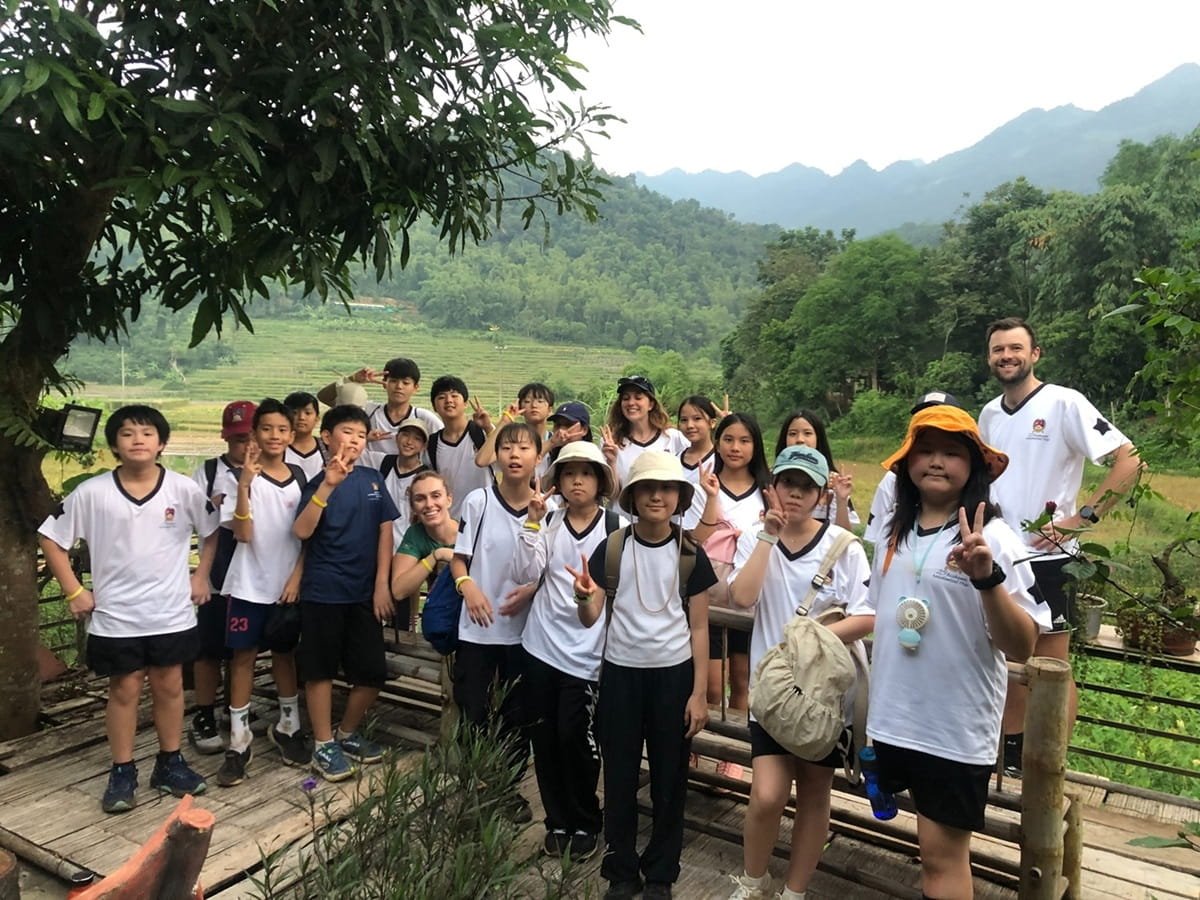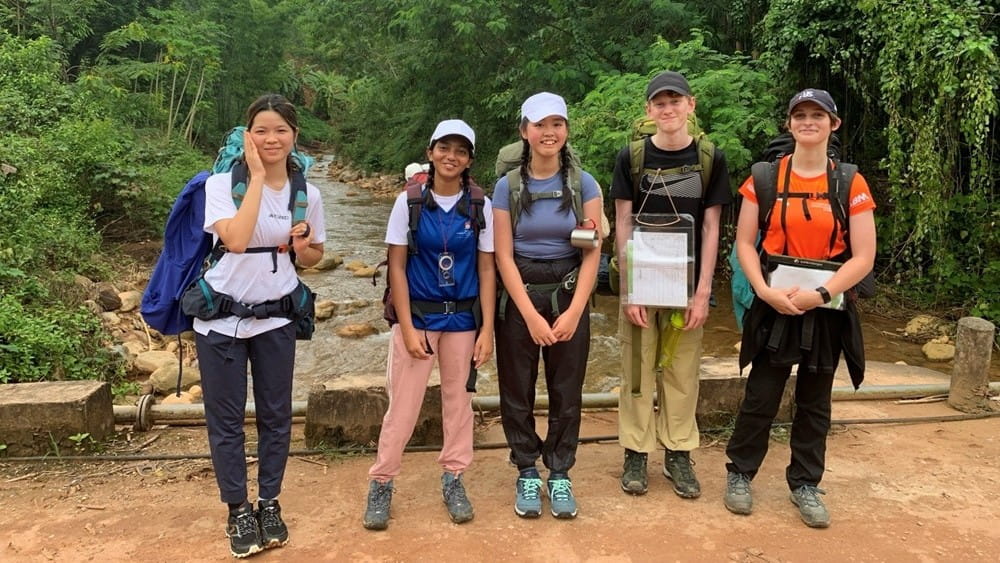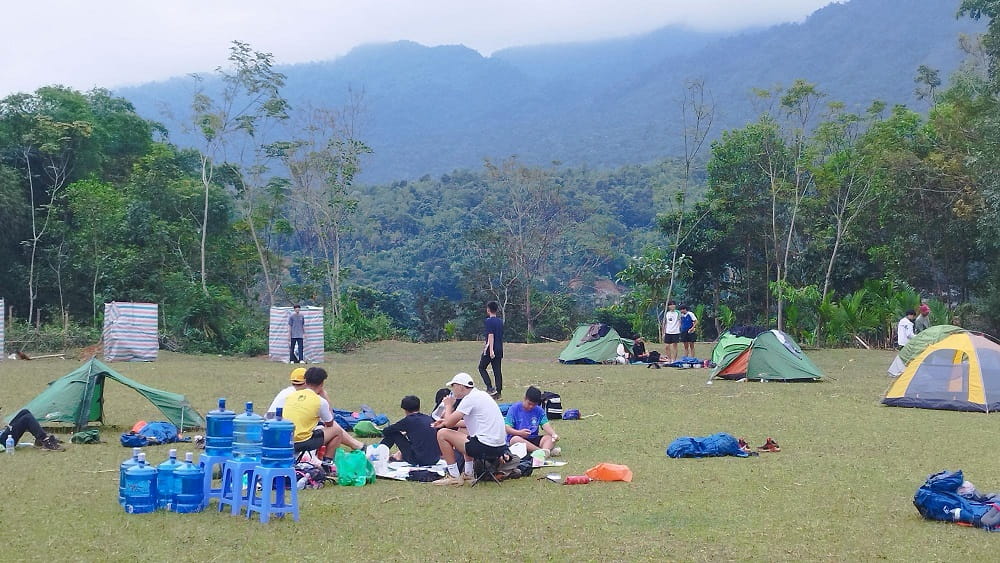BIS Hanoi student spreads the message on rhino protection After winning Wilderness Foundation Africa’s 2018-2019 Wild Rhino Competition, Duc Tuan from Year 12 had the opportunity to go on a trip to South Africa. In July, he took part in a wilderness trail at one of South Africa’s Game Reserves. Since his return, Duc Tuan has been happy to share details of his once-in-a-lifetime experience as well as what he has learnt about rhinos and wildlife protection.

After winning Wilderness Foundation Africa’s 2018-2019 Wild Rhino Competition, Duc Tuan from Year 12 had the opportunity to go on a trip to South Africa. In July, he took part in a wilderness trail at one of South Africa’s Game Reserves. Since his return, Duc Tuan has been happy to share details of his once-in-a-lifetime experience as well as what he has learnt about rhinos and wildlife protection.
Last year, Duc Tuan was announced as the winner of the national Wild Rhino Competition 2018-2019 and earned a trip to Africa. The competition, which has been organised by the Wilderness Foundation Africa since 2014, has the aim of educating the youth of Vietnam and encouraging them to speak up against rhino poaching. The bi-yearly competition invites students to submit a poem, a drawing (for junior students) or an essay (for senior students) to project their message about anti-rhino poaching.
Inspired by the trip, Duc Tuan has returned with many exciting stories and a message on wildlife protection that he would like to share with his peers.
What were your feelings going into the trip?
Going into the trip, I thought that it was merely another expedition - another Duke of Edinburgh-style experience if I may put it. I was proven completely wrong given the activities that I was able to participate in.
How was the trip overall?
If one was to ask me questions regarding the difficulty of the trip, I would’ve said that anyone would be able to complete the trip. However, it erudition that matters when venturing on this type of expedition in Africa. I felt an incredibly strong bond with the nature that surrounded me. I feel like part of me was left behind in Africa. The more time you spend in the African wilderness, the more connected you become to the animals, landscape and people. It was the most incredible experience.
What did you learn from your experiences in Africa?
This excursion has taught me the importance of conservation and the protection of the wilderness and its wildlife. If we all make conservation a priority now, then the opportunities that we have to see these incredible animals and landscapes will be available to our future generations.
What are your perspectives on rhino protection?
As much as I would like to acknowledge the great work that is being carried out by wonderful organisations such as the Wilderness Foundation Africa, Peace Parks Foundation and the Soul and Olsen Animal Trust, not enough work is being done across the board to conserve the livelihoods of these critically endangered animals. If we want to conserve these animals for our future generations to experience, more information has to be promoted and made accessible to the general public about the illegal poaching of rhinos and trading of their horns.
What do you want to tell other people?
To rhino horn users - I’ll help you debunk some of your myths. Rhino horns are not a renewable resource. They do not grow back onto the rhino after the horn is severed from the animal’s body. In fact, the majority of rhinos that have been poached for their horns are often left to bleed out and die in excruciating pain. If the moral reasons do not persuade you to give up you use of rhino horn, the false so-called “super powers” that have been advertised to the consumers will. Rhino horn has been scientifically proven to have no effect on curing cancer, prolonging one’s life span or improving the male vitality. The matter of the fact is that the material that rhino horns is made of is Keratin, the same material that human hair and fingernails is
made from. As for the people using rhino horns as a status symbol, you are likely in possession of an item that has taken the life of an endangered species. To quote Ernest Hemingway “When they are all gone, when every soul is stolen. How will we remember them?”
To rhino conservationists - even in 2019, 90% of illegal rhino horns pass through Vietnam en route to be sold onto other markets. Vietnam has the second biggest market for rhino horns second to only China. Big changes must me made and they have to be made now.
Besides the trip to South Africa, Duc Tuan has also become an official Wild Rhino Youth Ambassador along with 13 other winners. They work directly with the Wilderness Foundation Africa team in Vietnam to continue raising awareness and encourage people to stop using rhino horn.







